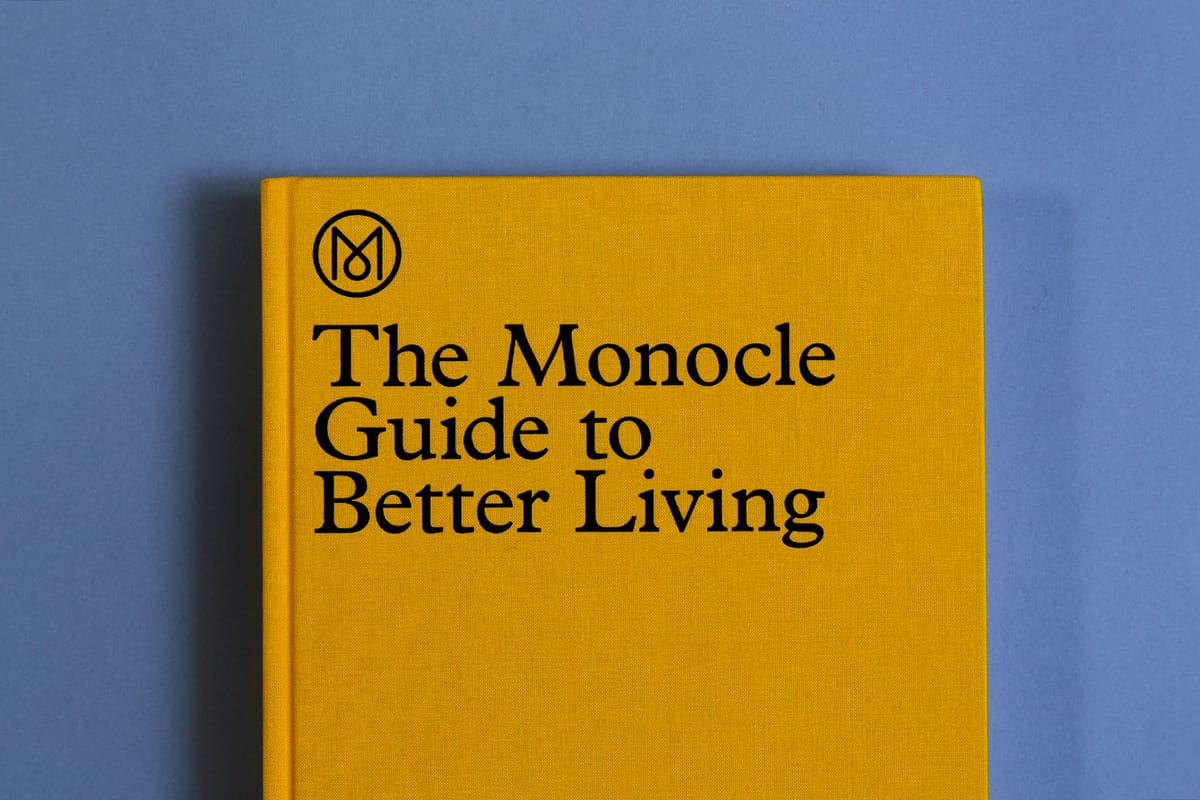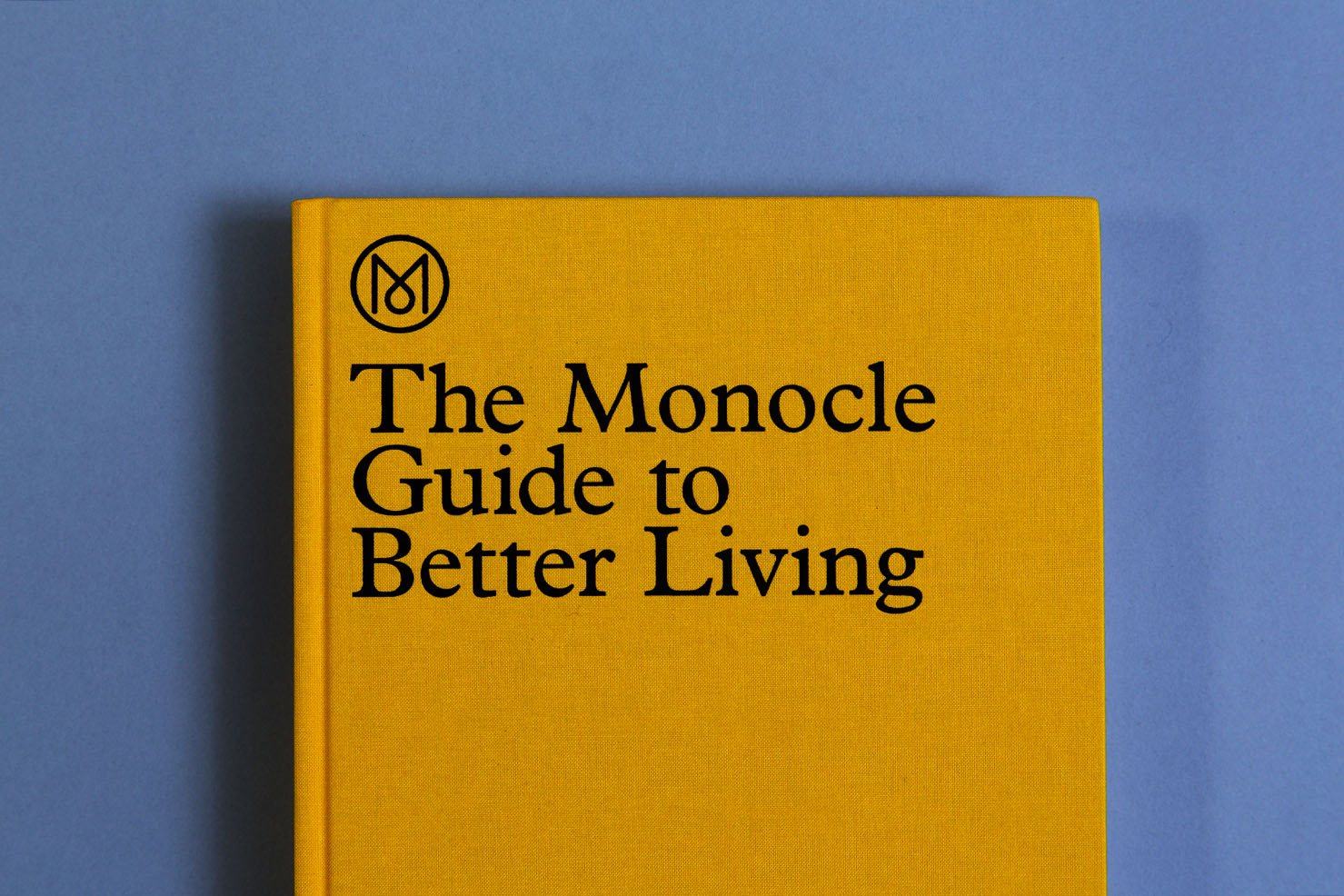
Monocle’s first foray into book publishing promises to show us inspirational ways to live our lives, but is it more a matter of style over substance? Ah, Monocle. Your natty political profiles (complete with rigorous wardrobe rundowns) and prim fashion shoots. Your sanitised cities and penchant for peacocky prose. We enterprising urbanites positively love to love you. And we shall surely continue to eat up everything your mini media empire churns out. Er, that is, we’ll savour all the finery your artisans in Tasmania and Tuscany expertly handcraft from only the choicest local materials.
The Monocle Guide to Better Living, the new book born of an interesting tie-up with Gestalten, is meant to be a comprehensive distillation of the brand. A voiceover on its accompanying promotional film bills it “the ultimate reference for inspirational ways to improve your life,” an almost absurdly ambitious assertion but one which you just might be tempted to buy into coming from such a well-regarded brand. Alas, this bit of telltale hyperbole encapsulates the book’s most problematic aspect: beyond its failure to provide any real barometer for better living, the guide blithely and myopically ties quality of life to object acquisition and image.
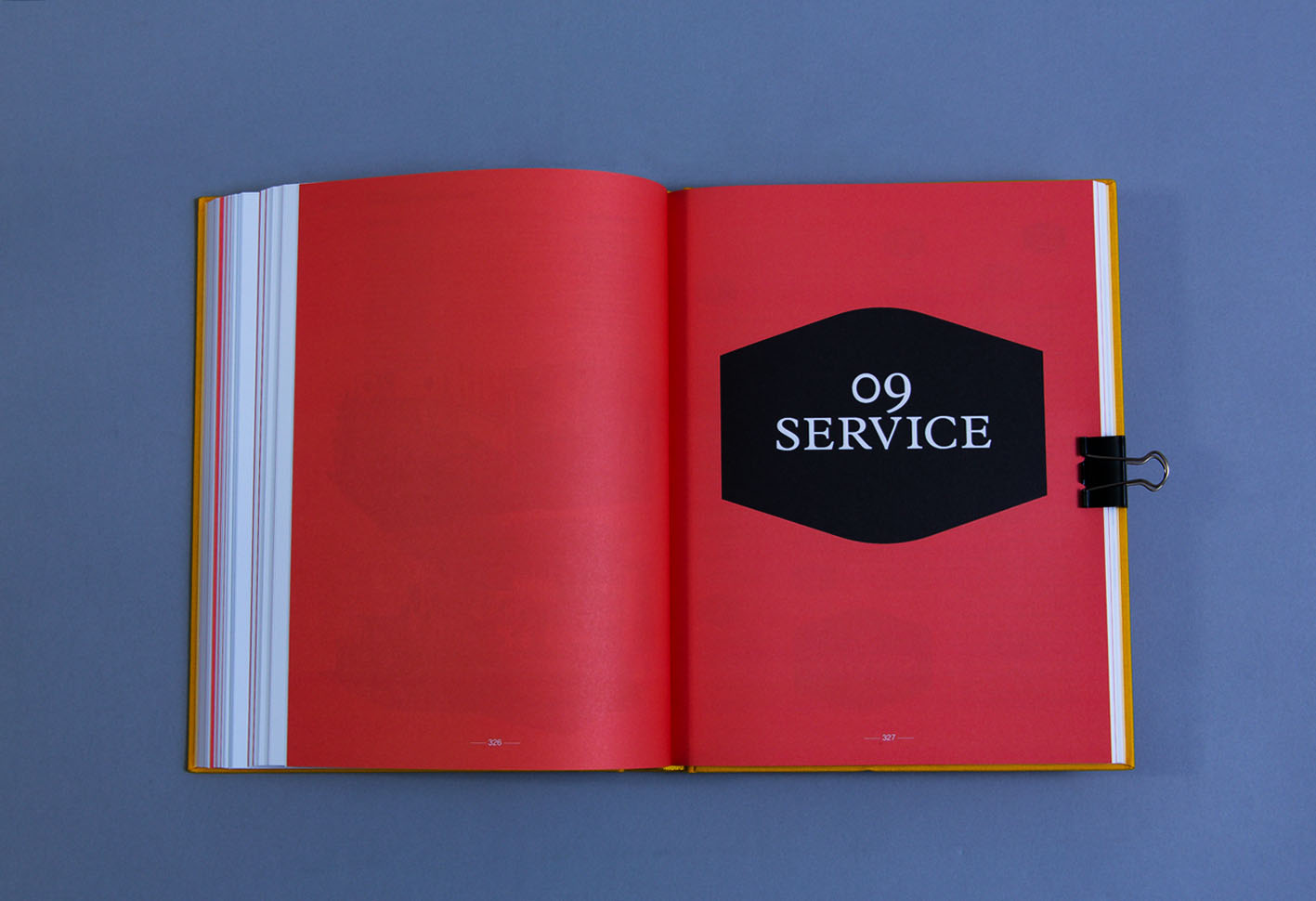
Metahaven, in its recent essay for Strelka Press, made reference to what Richard Florida called the “wealth cloud of gallery openings, furniture stores and coffee and wine bars,” going on to describe the phenomenon as “some sort of 72dpi parody of the 19th century bourgeoisie’s transformation of the inner city into a theme park for the flâneur.” And while both the American theorist and the subversive Dutch designers were aiming their cynicism elsewhere, their critique conveniently makes for an uncanny (and damning) a description of brand Monocle’s ideal. Fluffy features such as a reportage on the adorably absurd lengths some Japanese dog owners will go to deck out their canine companions make this guide the ultimate reference for precisely that 72dpi parody.
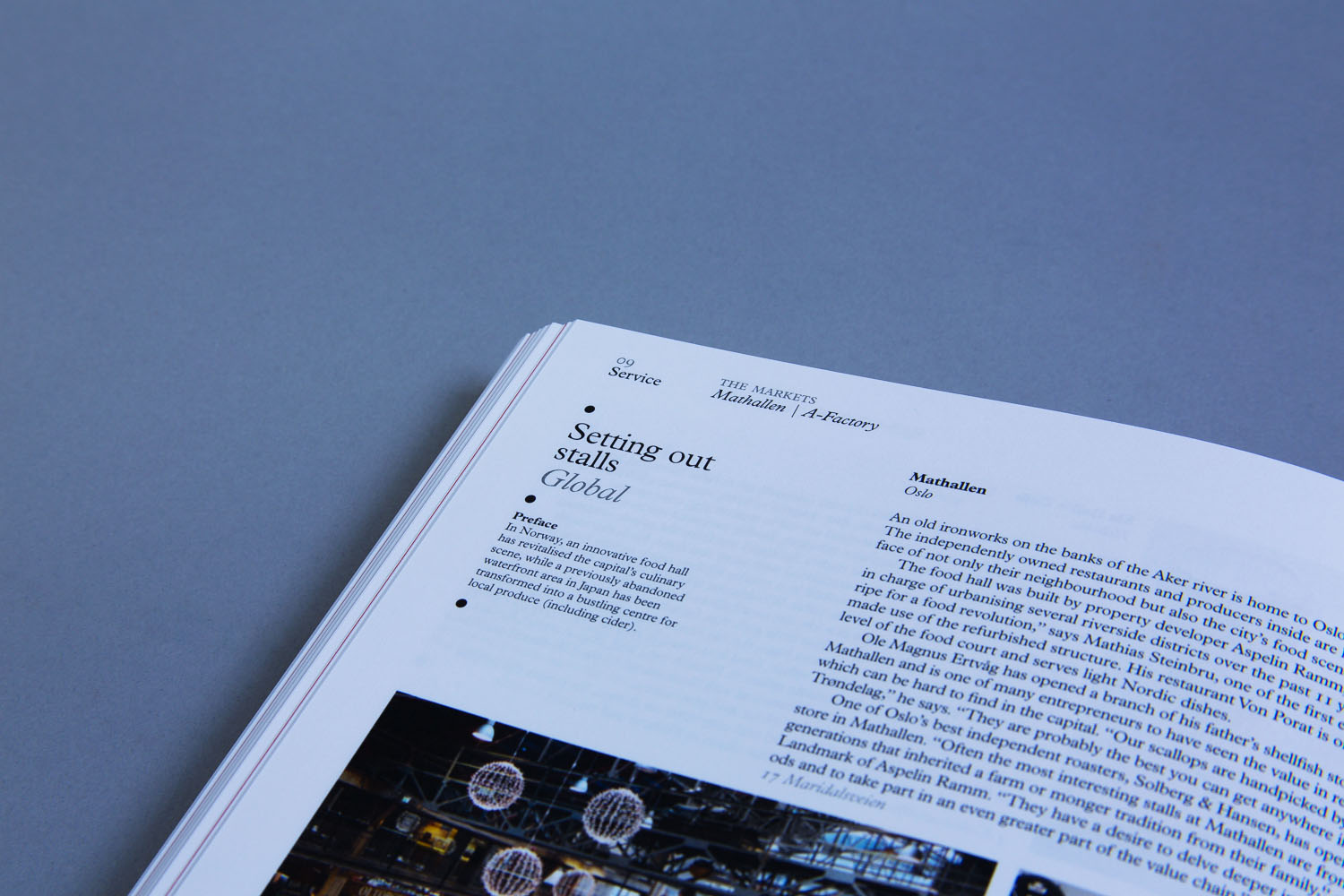
Still, it’s hard to harbour too much ill will towards an outfit that, at its core, is dedicated to evangelising progress, punctiliousness and print. Its model has been a major bright spot for contemporary journalism, and at its best, Monocle is a source of solid editorial and timely discussions on global politics, culture and cities, and the nuts and bolts of well-run business. Moreover, the admirable tenets with which Tyler Brûlé & Co. have blazed an undeniably innovative trail have seen the brand become synonymous with the aspirational, well-considered urban lifestyle in less than a decade’s time.
So, despite at times seeming ever-so-slightly out of touch, there is likely no brand better equipped for framing a guide to better living. In execution, the book is for all intents and purposes simply a maxi-sized issue of the typical Monocle monthly: plentiful lists, light editorialising and a litany of crisp, straightforward reportage. But while a magazine generally functions as a source of timely information (and with a little luck, becomes something of a time capsule), a book carries with it the implicit burden of (relative) timelessness. The guide falls firmly into the former.
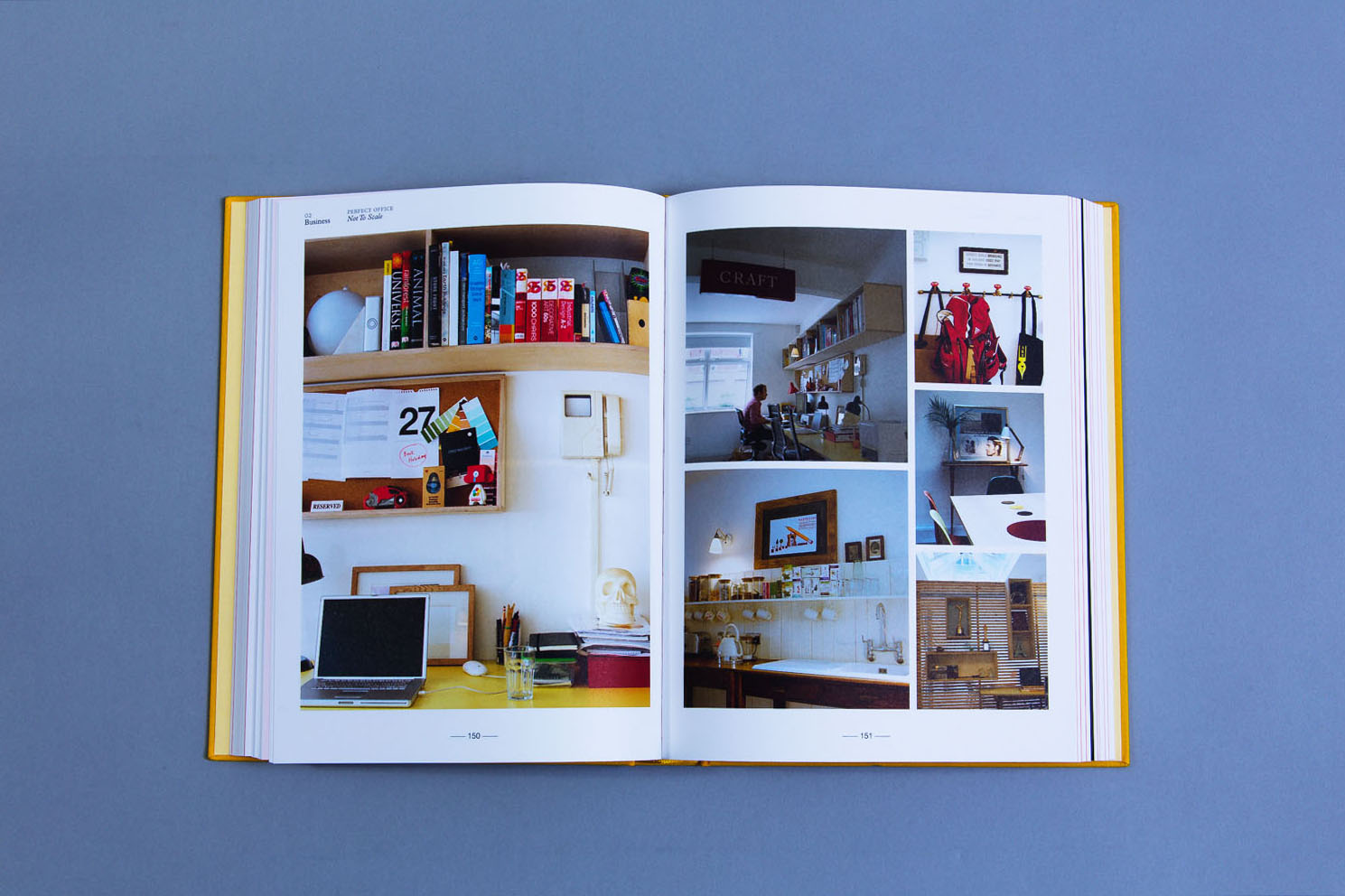
More importantly, it might have been an opportune moment for the brand to put forth a solid manifesto in a context removed from transitory vogue. While there is certainly an implication that the guide’s contents are somewhat definitive, neither the same-old same-old art direction (read: identical) nor the all-too-familiar format lend any extra weight as distinguished from the monthly counterpart. Altogether the book fails to break any new ground for the brand and, unfairly or not, helps to reinforce many of its less favourable connotations.
If nothing else, the schlepping Monocle did for Alain de Botton a few years ago upon the release of his The Pleasures and Sorrows of Work certainly suggests that it does indeed align itself with a pretty explicit school of thought. De Botton’s approachable and pragmatic philosophy, long since aimed squarely at ‘better living’ through rituals, relationships and reflection might have provided an ideal springboard for a guide whose substance might have lived up to its provocative title.
The Monocle Guide to Better Living
Published by Gestalten, £39

